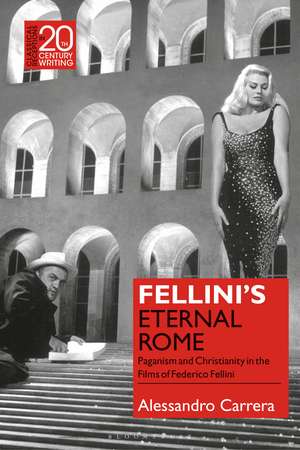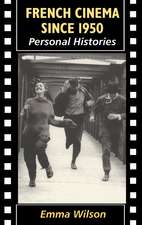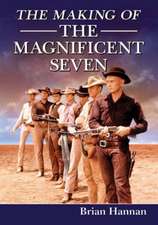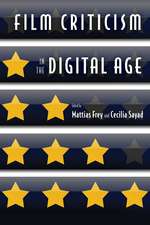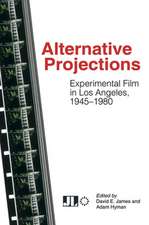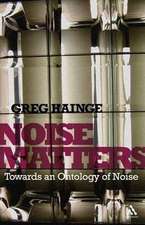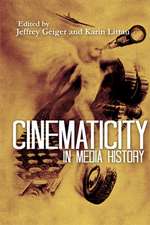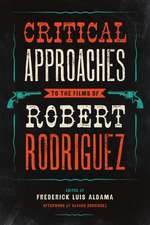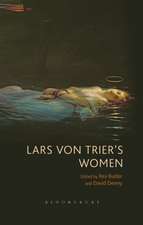Fellini’s Eternal Rome: Paganism and Christianity in the Films of Federico Fellini: Classical Receptions in Twentieth-Century Writing
Autor Professor Alessandro Carreraen Limba Engleză Hardback – 31 oct 2018
| Toate formatele și edițiile | Preț | Express |
|---|---|---|
| Paperback (1) | 223.02 lei 6-8 săpt. | |
| Bloomsbury Publishing – 27 mai 2020 | 223.02 lei 6-8 săpt. | |
| Hardback (1) | 597.29 lei 6-8 săpt. | |
| Bloomsbury Publishing – 31 oct 2018 | 597.29 lei 6-8 săpt. |
Preț: 597.29 lei
Preț vechi: 857.90 lei
-30% Nou
Puncte Express: 896
Preț estimativ în valută:
114.31€ • 118.33$ • 96.61£
114.31€ • 118.33$ • 96.61£
Carte tipărită la comandă
Livrare economică 05-19 martie
Preluare comenzi: 021 569.72.76
Specificații
ISBN-13: 9781474297615
ISBN-10: 1474297617
Pagini: 200
Ilustrații: 5 bw illus
Dimensiuni: 156 x 234 x 17 mm
Greutate: 0.46 kg
Editura: Bloomsbury Publishing
Colecția Bloomsbury Academic
Seria Classical Receptions in Twentieth-Century Writing
Locul publicării:London, United Kingdom
ISBN-10: 1474297617
Pagini: 200
Ilustrații: 5 bw illus
Dimensiuni: 156 x 234 x 17 mm
Greutate: 0.46 kg
Editura: Bloomsbury Publishing
Colecția Bloomsbury Academic
Seria Classical Receptions in Twentieth-Century Writing
Locul publicării:London, United Kingdom
Caracteristici
Highlights recurring classical figures and themes in Fellini's films such as the satyr, androgyny, the sorceress, the goddess, the pageant, and how these mythical tropi resurface in Christian symbolism
Notă biografică
Alessandro Carrera is John and Rebecca Moores Professor of Italian Studies and World Cultures and Literatures at the University of Houston, Texas, USA. He has written on Italian and Comparative Literature, Italian and Continental Philosophy, music, and cinema. He has translated into Italian three novels of Graham Greene and all the songs and prose of Bob Dylan.
Cuprins
Series Editor's PrefaceAuthor's PrefaceIntroduction. What is Wrong with Fellini?1. Fellini, Dante, and the Gaze of Medusa2. Fellini and Rossellini: the "Trilogy of Faith" (1946-1950)3. La Dolce Vita or How I Learned to Stop Worrying and Love my Sins4. 8 ½ or Trouble in Paradise5. Fellini-Satyricon I: An Archaeology of Silence6. Fellini-Satyricon II: "Seek Out the Ancient Mother" (Aeneid III, 96)7. Roma: Barbarians Inside the Gates8. From City of Women to The Voice of the Moon: Fall of the GoddessBibliographyIndex of Names and Films
Recenzii
Fellini's Eternal Rome is one of those miraculous works of criticism that moves from deep and novel intuitions of broader cultural significance, unfolding them gradually and pervasively in what seem at first to be digressions, yet that quickly reveal themselves to be the necessary pieces of a puzzle that form a novel and persuasive explanation of Fellini's cinema. The book is a most carefully researched and effectively presented advance in modern Italian cultural history, a contribution delivering new and momentous insight that will undoubtedly stimulate further research on Fellini.
Professor Carrera is to be congratulated on this diverting and informative study of the life and work of the pagan-Catholic King of Cinecittà.
Offering fresh insights and personal anecdotes, Carrera details the doubts, conflicts, and artistic decisions made by the director during his long career in the cinema. Summing Up: Highly recommended. Upper-division undergraduates through faculty.
[Fellini's Eternal Rome] stimulates readers to a new appreciation of Fellini's films at 25 years from his death.
Carrera's readings of paganism and Christianity in Fellini's work are engaging, provocative and often brilliant, augmented by his highly original and at times irreverent authorial voice.
Alessandro Carrera's engagement with Fellini is both personal and intellectual. In this groundbreaking study, he compellingly unpacks the Italian director's at times perplexing aesthetics by bringing to light the conflictual relation between the Pagan and the Christian elements that recur in his cinematic production. The unresolved relation at the centre of Fellini's cinematography provides a critical key to the understanding of his artistic genius. Alessandro Carrera's sophisticated knowledge of both the classical world and contemporary Italian society, together with his consummate ability to draw original and convincing connections between seemingly distant literary and artistic discourses, produces a compelling re-interpretation of Fellini's films. An engaging critical journey, an enjoyable narrative replete with captivating anecdotes, Alessandro Carrera's study is a must for Fellini's present and future scholars and an essential reading for anyone interested in deepening their understanding of one of Italy's greatest cinematographers.
Alessandro Carrera's research represents an important contribution to a theme of great importance in the film production of [Federico Fellini] . Carrera follows a difficult but profitable path; through a series of insights, he builds its demonstration by revealing the indissoluble link in Fellini's philosophical imaginary between paganism, Christianity and Rome.
Professor Carrera is to be congratulated on this diverting and informative study of the life and work of the pagan-Catholic King of Cinecittà.
Offering fresh insights and personal anecdotes, Carrera details the doubts, conflicts, and artistic decisions made by the director during his long career in the cinema. Summing Up: Highly recommended. Upper-division undergraduates through faculty.
[Fellini's Eternal Rome] stimulates readers to a new appreciation of Fellini's films at 25 years from his death.
Carrera's readings of paganism and Christianity in Fellini's work are engaging, provocative and often brilliant, augmented by his highly original and at times irreverent authorial voice.
Alessandro Carrera's engagement with Fellini is both personal and intellectual. In this groundbreaking study, he compellingly unpacks the Italian director's at times perplexing aesthetics by bringing to light the conflictual relation between the Pagan and the Christian elements that recur in his cinematic production. The unresolved relation at the centre of Fellini's cinematography provides a critical key to the understanding of his artistic genius. Alessandro Carrera's sophisticated knowledge of both the classical world and contemporary Italian society, together with his consummate ability to draw original and convincing connections between seemingly distant literary and artistic discourses, produces a compelling re-interpretation of Fellini's films. An engaging critical journey, an enjoyable narrative replete with captivating anecdotes, Alessandro Carrera's study is a must for Fellini's present and future scholars and an essential reading for anyone interested in deepening their understanding of one of Italy's greatest cinematographers.
Alessandro Carrera's research represents an important contribution to a theme of great importance in the film production of [Federico Fellini] . Carrera follows a difficult but profitable path; through a series of insights, he builds its demonstration by revealing the indissoluble link in Fellini's philosophical imaginary between paganism, Christianity and Rome.
